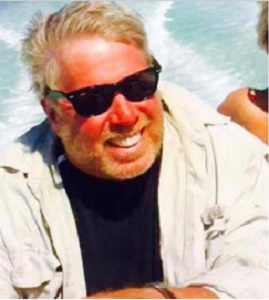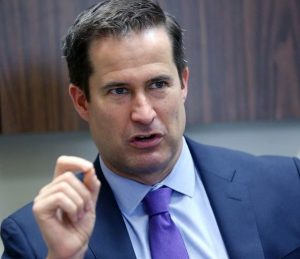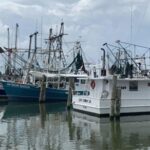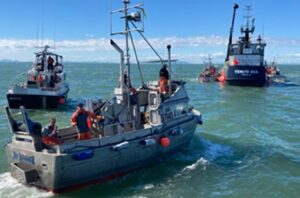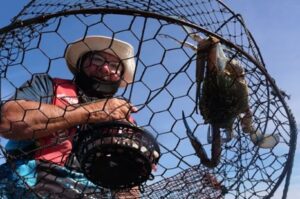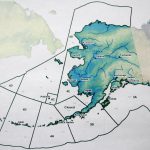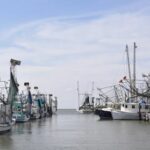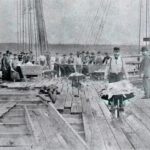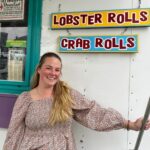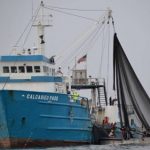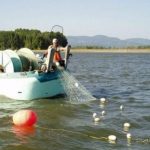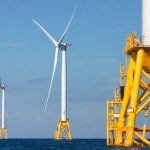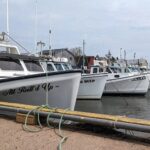Category Archives: Pacific

It’s good to see crab season finally underway
The people who make up the commercial crabbing fleet work in some of the worst weather Mother Nature can throw at them. And this year is proving to be no different. The area is experiencing some pretty heavy rainfall, and during the first part of this week, there was also a high wind warning and a high surf advisory. Crabbing is generally a lucrative fishery, but they certainly earn their pay. We offer prayers for a safe and bountiful harvest for all of them. Speaking of the fishing industry,,, >click to read< 07:14
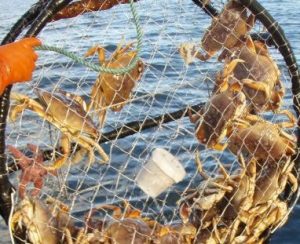
Del Norte County commercial fishermen will drop their pots Thursday
The first Dungeness crab of the season is expected to hit Citizens Dock on Saturday,,, Following a meeting Monday morning, fishermen in Oregon and California and wholesalers agreed on $2.75 per pound of Dungeness crab,,, Seafood processors, including Pacific Choice Seafood, Bornsteins Seafoods and Hallmark Fisheries had offered $2.50 per pound,,, The discussion Monday involved fishermen in Brookings, Crescent City, Trinidad, Eureka and Fort Bragg, Shepherd said. Fishermen agreed to set their pots starting at 8 a.m. Thursday for a 48-hour soak and bring their catch in on Saturday, he said. >click to read< 07:39
Rough Seas Delaying Crab Pot Deployment – A gale warning from the Eureka office of the National Weather Service, in effect now until 3 a.m. Wednesday from Point St. George to Cape Mendocino, states “strong winds will cause hazardous seas which could capsize or damage vessels and reduce visibility.” >click to read<
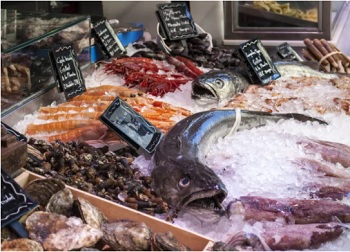
Deadline to Apply for Seafood Trade Relief Program Coming Up
“U.S. fishermen affected by retaliatory tariffs need to file an application for this program by Friday, Jan. 15,” said Richard Fordyce, Administrator for USDA’s Farm Service Agency (FSA). “We still have funding available, and these direct payments will help them recover from the effects of retaliatory tariffs on their ability to make a living.” STRP is available for the following types of seafood: Atka mackerel, Crab (Dungeness, King, Snow, Southern Tanner, Flounder, Geoduck, Goosefish, Herrings, Lobster, Pacific Cod, Pacific Ocean Perch, Pollock, Sablefish, Salmon, Sole, Squid, Tuna, Turbot. To apply, visit farmers.gov/seafood or call 877-508-8364. >click to read< 12:20
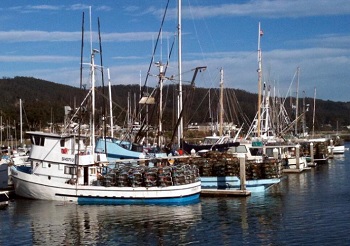
Half Moon Bay: Commercial crab fishing set to start Monday
Commercial crab fishing season will start Monday, Jan. 11, in the Half Moon Bay area after local fishermen reached an agreement with seafood companies,,, The agreement means local Half Moon Bay fisherman will sell fresh crab on Johnson Pier at Pillar Point Harbor as early as Friday, Jan. 15. Local stores could see fresh crab arrive that weekend, according to Half Moon Bay fisherman Frank Souza. “We’re excited to get it started and stop all the phone calls and the stuff we are not good at,” Souza said. Fishing associations representing San Francisco, Bodega Bay and Half Moon Bay have reached a gentlemen’s agreement not to start setting down nets and gear in fishing waters until 8 a.m. Monday,, >click to read< 08:48
California Crab Fishermen Reduce Asking Price To $3.10; Representative for Processors Says COVID-19 Effects On Dungeness Market Continue – >click to read<
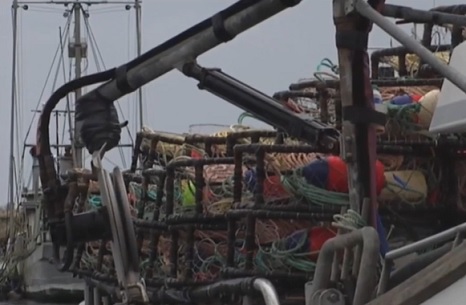
Oregon: Dungeness crab season a go as fisherman, California Crab Fishermen Reduce Asking Price
After more than three weeks on strike, commercial Dungeness crab fishermen accepted an offer of $2.75 from Oregon processors. But Pacific Seafood’s offer has strings attached. “All the boats that are delivering to Pac Choice have to deliver their first two offloads to Pac Choice guaranteed,” said Tyler Leach “Which means they can’t go to an alive buyer, they can’t go to anybody else whose offering a better price at that point in time.” The fleet was hoping to be offered upward of $3,,, “We sat for a very long time so hopefully it will go up shortly after we get fishing.” >click to read< 07:50
California Crab Fishermen Reduce Asking Price To $3.10; Representative for Processors Says COVID-19 Effects On Dungeness Market Continue – >click to read<
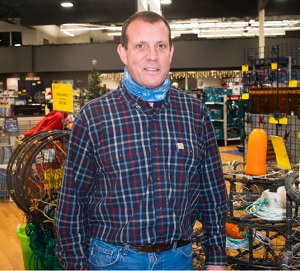
Meet the Merchant: Kurt Englund, Englund Marine & Industrial Supply
Describe what Englund Marine & Industrial Supply does and who it serves. “We supply fishing gear and boat parts for commercial and recreational fishermen and marine applications. We also stock a full line of industrial supplies. A lot of it goes to our local mills, loggers, construction companies, fabricators, municipalities and so on. And we get a lot of general residents in for home projects as well.” Tell me about the history of Englund Marine,,, >click to read< 11:05
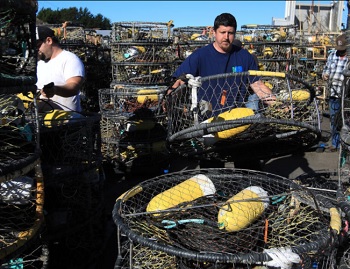
Price strike drags on for California crab fleet holding out for better price
“We can’t afford to do these operations with the price they’re offering. We go backward,” said Ben Platt, president of the California Coast Crab Association. “That’s why everyone’s holding together, holding strong. We were starting at $3 a pound 10 years ago, and our costs have definitely gone up.” The additional two bits that crabbers are seeking before they’ll be wiling to leave dockside makes an enormous difference when multiplied by thousands of pounds.,, Veteran Bodega Bay crabber Tony Anello, part of a family long tied to the industry. “You’re not going to be able to keep your crew long, because you can’t sustain them. >click to read< 09:01

Oregon: Commercial Dungeness crab fishermen reject another offer from processor
Commercial Dungeness crab fishermen declined another offer from Pacific Seafood on Wednesday.,, It’s been three weeks since the commercial Dungeness crab season started. With prices still in question, boats continue to float at the docks. Russell’s Marine Fuel and Supply hasn’t sold fuel to the commercial fleet in two weeks. “Everybody can be off work for a month, but you start getting into month two, month three and you do start seeing that effect,” says operations manager Curtis Green. >click to read< 07:04
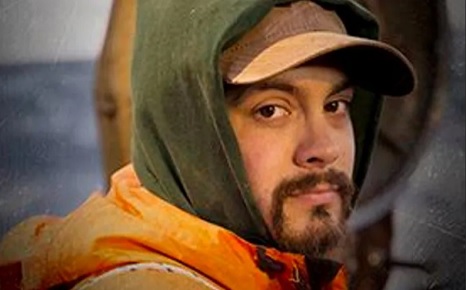
Deadliest Catch deckhand Mahlon Reyes’ cause of death has been reported as acute cocaine intoxication
Deadliest Catch star Mahlon Reyes sadly died at the age of 38 following a drug overdose, it’s been reported. The television personality – known for being a deckhand on one of the crab fishing boats – died in July 2020 after reportedly suffering from a heart attack. According to TMZ, Reyes’ cause of death has since been linked to acute cocaine intoxication. Flathead County Sheriff and Coroner, Brian Heino, also reportedly told the publication that Mahlon’s death has been ruled as accidental. Confirmation of Mahlon Reyes’ cause of death comes just one week after co-star Nick McGlashan was found dead at the age of 33. >click to read< 10:25
The Deadliest Disease – A lifestyle of the Bering Sea Crabber is a dream for many, but a reality for few. Hard work and fast money make this a lucrative industry enviable for the hopeful masses. By Nick Mcglashan >click to read<
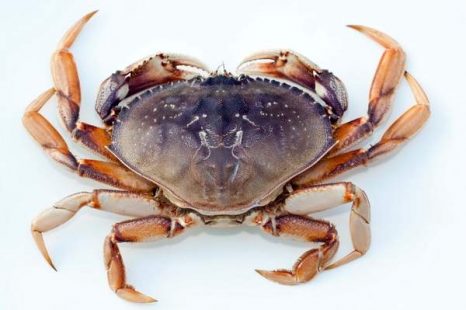
California: Dungeness crab fishermen unite during uncertain times
Commercial fishermen from the Half Moon Bay Seafood Marketing Association, the San Francisco Crab Boat Owners Association and the Bodega Bay Fishermen’s Marketing Association, have come together to broker an agreement that will ensure a safe and orderly start to the commercial Dungeness Crab season in California, once price negotiations are settled. Local groups are coordinating with all California ports,,, >click to read< 07:40
North Pacific Pollock fishing crews on edge after a tough 2020 of small fish and COVID-19
 Skipper Kevin Ganley spent most of the summer and fall pulling a massive trawl net through the Bering Sea in a long slow search for pollock, a staple of McDonald’s fish sandwiches. The fish proved very hard to find.,,, Fishermen, for example, helped in taking bottom temperatures with equipment they brought on board their vessels. >click to read< And scientists figured out a way to roughly measure the pollock abundance through acoustic sonar mounted in three Saildrones, which are remote-controlled 20-foot boats. >click to read< 14:05
Skipper Kevin Ganley spent most of the summer and fall pulling a massive trawl net through the Bering Sea in a long slow search for pollock, a staple of McDonald’s fish sandwiches. The fish proved very hard to find.,,, Fishermen, for example, helped in taking bottom temperatures with equipment they brought on board their vessels. >click to read< And scientists figured out a way to roughly measure the pollock abundance through acoustic sonar mounted in three Saildrones, which are remote-controlled 20-foot boats. >click to read< 14:05
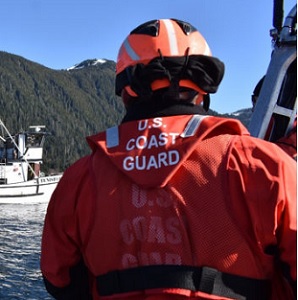
Coronavirus: Coast Guard offers extension on credentials, medical certificates, and course approvals
Coast Guard officials have announced an extension of merchant marine credential endorsements, medical certificates and course approvals to meet challenges caused by the global novel coronavirus pandemic. At the same time, the Coast Guard advised that due to these changes there may be a backlog in the processing of credentials and course approvals, especially near the end of the extension dates.,, Under the Coast Guard’s current statutory authority, the expiration dates of merchant mariner credentials may be extended for no more than one year. >click to read< 14:34
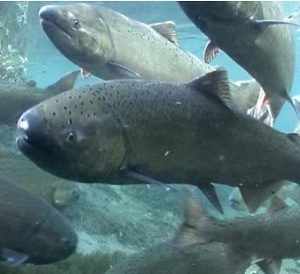
Scientists worry B.C. hatchery fish threatening endangered wild chinook
More chinook salmon populations have landed on the endangered species list in B.C.,, With many salmon runs experiencing the lowest returns on record, there has been mounting public pressure for the federal government to step up hatchery production through the Salmonid Enhancement Program. But conservation groups and scientists are sounding the alarm on the long-term consequences of high-volume hatcheries. >click to read< 09:38

A Presidential Veto Message to the United States Senate for S. 906
TO THE SENATE OF THE UNITED STATES: I am returning, without my approval, S. 906, the Driftnet Modernization and Bycatch Reduction Act. America’s fishermen have made great sacrifices to ensure that our Nation’s marine fisheries are a sustainable economic engine for coastal communities. Under my Administration, the number of United States fish stocks subject to overfishing is at a historic low. This achievement is the result of a transparent and collaborative regulatory process that is supported by regional fishery management councils. At council meetings, fishermen work with Federal Government and State government representatives to meet their statutory obligations under the Magnuson-Stevens Fishery Conservation and Management Act. >click to read< President Donald J. Trump 08:00
 Senator Dianne Feinstein’s Statement on President Trump’ Veto of Driftnet Bill – “We must protect marine life from deadly drift gillnets, particularly considering there is a viable alternative ready to be deployed. There is not enough time to override the veto so I will reintroduce this bill on the first day of the new Congress and will push for quick enactment once President Biden is in office.” >click to read<
Senator Dianne Feinstein’s Statement on President Trump’ Veto of Driftnet Bill – “We must protect marine life from deadly drift gillnets, particularly considering there is a viable alternative ready to be deployed. There is not enough time to override the veto so I will reintroduce this bill on the first day of the new Congress and will push for quick enactment once President Biden is in office.” >click to read<
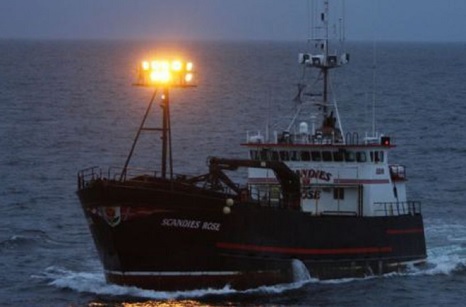
One year after the F/V Scandies Rose sinks: Family honors the victims
December 31, 2020 marks one year since a mayday call that changed lives. The F/V Scandies Rose fishing boat issued the call off the coast of Kodiak, during a sinking some crew members would not survive. Family members of a few of the victims said they will commemorate the lives lost at sea Thursday evening at 9:50, the time the mayday call went out. Please >click to read, and watch the video< . 11:49

Washington State Crab Recall: Certain Dungeness crabs recalled because of poisoning risk
The Quinault Tribe of the Northwestern United States is voluntarily recalling almost 58,000 pounds of live or un-eviscerated Dungeness crab because of possible domoic acid contamination, which can cause amnesic shellfish poisoning in people. With Dungeness crab being a popular New Year’s dish, public health officials in Washing state posted the recall notice today in hopes of reaching holiday cooks before meals are prepared. It is not clear how far the crab may have been distributed. >click to read< 09:30

What? No Fresh Oregon Crab? Oregon crab fleet remains in port 2 weeks after open of Dungeness season
The commercial Dungeness crab season, Oregon’s most valuable fishery, opened at 12:01 a.m. on December 16. Two weeks later, the fleet remains tied up in port as crabbers and processors squabble over a price. Both Pacific Seafood and Hallmark Fishers have offered $2.50 per pound. Crabbers started at $3.30 but reduced their offer to $3.20 earlier this week. So far, no deal. And that means: so far, no fresh Oregon Dungeness crab. Crab boat captains have speculated that processors have decreased demand due to restaurant closures,,, >click to read< 17:05
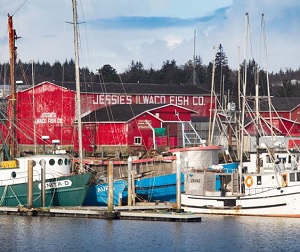
Safe Coast Seafoods preps for crab
The Chinook Observer spoke with Safe Coast Seafoods general manager Shannon Schafer, Pucci Foods CEO Chris Lam and Safe Coast Seafoods vice president of sales Max Boland about their plans as the new owners of Jessie’s Ilwaco Fish Co. When do you anticipate the official re-opening? Schafer: “We plan on being open this crab season.” Are there any plans to change the name (from Jessie’s Ilwaco fish Co.)? Schafer: “Safe Coast Seafoods has purchased the Jessie’s Ilwaco Fish Co. assets. We will be operating under the Safe Coast Seafoods brand.” What are the next steps before the business can resume operations? >click to read< 09:00

Five Days Into Commercial Dungeness Season, Seafood Buyers, Fishermen Haggle Over Price
Though California’s commercial Dungeness season opened five days ago, Crescent City’s commercial fleet has yet to drop pots as fishermen and buyers haggle over price. Fishermen are asking for $3.25 per pound while Pacific Choice Seafoods, of Eureka, is offering $2.50 per pound, Rick Shepherd, Crescent City Commercial Fisherman’s Association,,, “Pacific Choice has stayed on $2.50 and the boats in Oregon and California have not accepted that offer,” Shepherd said, adding that fishermen continue to negotiate with buyers. >click to read< 07:07
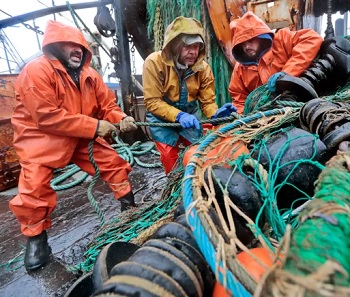
Legislation to help next generation of young fishermen passes in Congress
Congress passed bipartisan legislation on Dec. 20 that would establish a national program to train and educate the next generation of commercial fishermen. It must be signed by President Donald Trump before becoming law. The Young Fishermen’s Development Act, H.R. 1240, would create $2,000,000 in yearly grant funding, which would be dispensed to various organizations to provide mentorship and learning opportunities to fishermen just starting in the industry. >click to read< 12:19
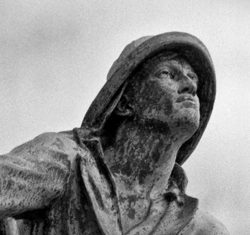
As the New Year is on the horizon, please consider implementation of a U.S. Fish Bill
Greetings to all commercial fishermen, fish processors, equipment suppliers, politicians, and citizens, that are interested and supportive of creation of a U.S. Fish Bill. I mentioned it in a letter to the editor, Letter: Can a fish bill, like Farm Bill, aid fishermen? on I have tried to get our local politicians to help me draft a U.S Fish Bill, which would serve the U.S Fishing Industry, like the U.S. Farm Bill does for the agriculture industry. >click to read< Sam Parisi, Gloucester 09:11
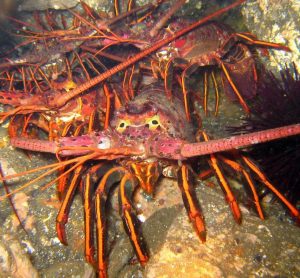
European Union is dropping tariffs on American lobster
President Donald Trump has signed a proclamation that finalizes an agreement with the European Union to eliminate tariffs on live and frozen lobster from the United States. In 2017, a trade agreement eliminated tariffs on live lobsters from Canada and slowly reduced and eliminated tariffs of frozen and processed Canadian lobster. At the same time, American lobster exports faced tariffs as high as 30% in the European Union. The new agreement will reduce tariffs on live and frozen U.S. lobsters to 0%, retroactive to Aug. 1. Video, >click to read< 11:24
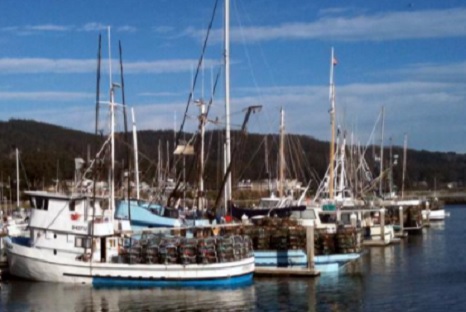
Crab fishing is delayed over price negotiations; no one wants under $3 a pound, will not go
Disputes between Bay Area fishermen and seafood company Pacific Seafood Group over crab prices are causing more delays to the start of the commercial crab fishing season. California allowed commercial crab season to begin Dec. 23 after a month delay over environmental concerns to whales and other marine animals. However, the fleets in Half Moon Bay and the entire Bay Area remain at an impasse,,, Fishermen want at least $3 a pound for crab, while Pacific Seafood Group is only offering $2.25 a pound. Until an agreement is reached, commercial fishermen from the Bay Area will not go out to fish. >click to read< 08:59
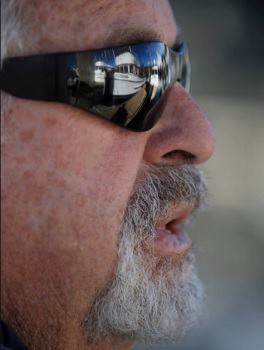
California: Don’t expect Dungeness Crab for Christmas this year
“Unless a miracle happens, which is highly unlikely, we won’t see crab for Christmas,” said Tony Anello, a veteran fisher who runs his boat, the Annabelle, out of Bodega Bay and offers up his tender product at Spud Point Crab Co. After several years of varied setbacks and more than a month of delays to the 2020 Dungeness season, local crabbers now face a new hurdle as they haggle over price with large wholesalers. “We should be traveling right now,” Dick Ogg,,, wholesalers are asking skippers to cut their prices by 30% to 35%, leaving both sides approximately $1 a pound apart from an agreement that would start the crab season. >click to read< 08:05
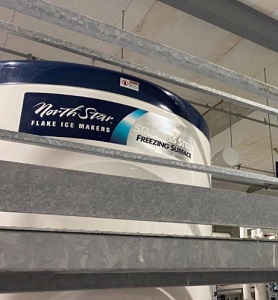
The new Charleston ice plant is up and running with increased prices
The port of Coos Bay has its new ice plant up and running in Charleston. The newly built ice plant replaces the plant that was destroyed by a fire in late December of last year. The new ice plant has increased storage capacity and a higher production rate, both of which were problems with the old plant. “We used to run into situations where we would need to either turn away,,, “And now during peak times, we should have no problem meeting the demand of our fleet.” With new technology, the cost of running the “state of the art” facility brings new pricing. photos, >click to read< 08:33
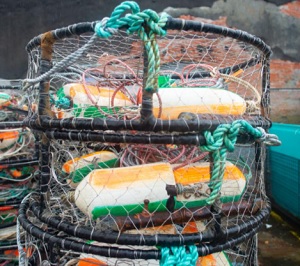
Researchers find new toxin hot spot
As high levels of domoic acid once again delay the opening of the commercial Dungeness crab fishery in Washington state and along Oregon’s North Coast, researchers say they have zeroed in on a like cause of marine toxin issues farther south. They recently identified a new highly toxic hot spot between California’s Cape Mendocino, several hundred miles north of San Francisco, and Oregon’s Cape Blanco, north of Port Orford, according to a study published this month. >click to read< 16:04

Report on Fishery Failures: Urgently Needed Disaster Declarations Act, S. 2346
Purpose of the Bill: The purpose of S. 2346, the Fishery Failures: Urgently Needed Disaster Declarations Act, is to clarify and expedite the disaster declaration process, establish certain deadlines for the National Oceanic and Atmospheric Administration (NOAA), reduce delays, and clarify eligibility for assistance to ensure that charter, recreational, and Tribal fishers have access to disaster funds. Additionally, the bill would provide employment opportunities for fishery employees displaced by a fishery disaster by prioritizing their hiring to undertake restoration, conservation, and other fishery rebuilding activities funded by disaster relief funds. >click to read< 09:22






